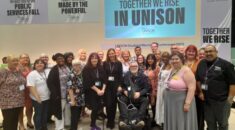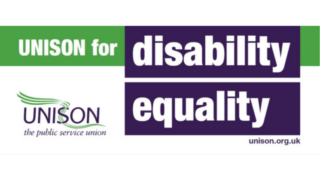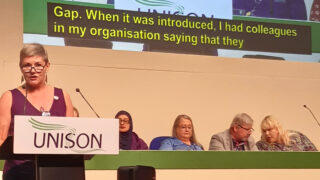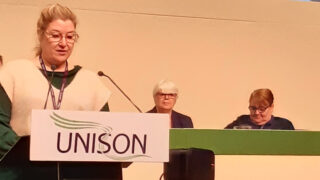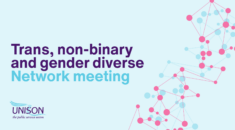In January, just as UNISON’s Year of the Disabled Workers began, the Westminster government’s National Disability Strategy was ruled illegal by the High Court.
With over 4 million disabled people in work across the UK, only three out of 114 questions in the consultation asked about disabled people’s experiences at work. It’s almost like the government still don’t understand that disabled workers exist.
UNISON found the same attitude during the COVID pandemic, when government guidance initially failed to acknowledge that people who were shielding might also have a job.
In its ruling, the High Court stated that the government had failed to properly consult disabled people on its National Disability Strategy and it was therefore illegal.
The debacle of the consultation shows that an old-fashioned attitude toward disabled people is still rife across government.
If the government wants to properly address the needs of disabled workers, they should take notice of the ground-breaking Disability Employment Charter.
UNISON is one of the founding members of the charter, which includes a call for a new legal duty on employers to respond to reasonable adjustments requests, which disabled workers are legally entitled to, within two weeks.
These adjustments could include speech-to-text software, a British Sign Language interpreter or flexible working to allow a later start and finish. But current legislation makes it difficult for disabled workers to get justice when things go wrong.
Our survey of over 5,000 UNISON disabled members – undertaken before the pandemic – found that a shocking 67% had had some, or all, of the adjustments they needed refused. Many said that they didn’t even get a response to their request, but were just ignored.
Even where employers agreed to adjustments, 23% of members said they waited a year or more for them to be put in place. This is a scandalous finding, and it’s one of the reasons I’m so keen to take the fight for reasonable adjustments to the heart of government.
With an estimated 200,000 disabled members, UNISON is perhaps the biggest organisation representing disabled workers in the UK.
Our members work as administrators, nurses, finance staff, care assistants, refuse workers, teaching assistants, call centre staff, charity workers, hospital porters, youth workers, librarians, cleaners – a huge diversity of jobs that disabled workers carry out every day.
They should not have to wait for adjustments they are entitled to by law. Forcing them to do jobs in an unsafe and often painful way, affects their performance and, in many cases, pushes workers out of the door.
By making 2022 the year of Disabled Workers, and by promoting the Disability Employment Charter, we believe we can change attitudes and make work a better and fairer place for all disabled workers.
I’m looking forward to working with our disabled members throughout 2022 to make this happen.


